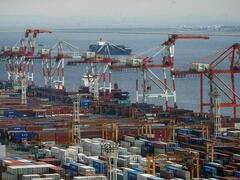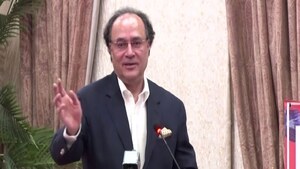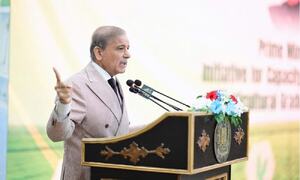Pressure is mounting on the Portuguese government to drop its austerity policies just as experts from the European Union and the International Monetary Fund are in Lisbon to assess Portugal's performance under its 78-billion-euro (102-billion-dollar) bailout.
The main opposition Socialist Party will not accept any more austerity measures, its leader Antonio Jose Seguro said this week. He called on Prime Minister Pedro Passos Coelho to apologize to the Portuguese for the "failure" of his economic policies.
A citizens' platform meanwhile called rallies in more than 40 cities on Saturday while the government prepared to impose still more spending cuts on the struggling population.
The EU and IMF came to Portugal's rescue in 2011 after its borrowing costs soared. Portugal became the third eurozone country to be rescued after Greece and Ireland. The troika formed by the EU, IMF and European Central Bank is in Lisbon to issue a seventh assessment of how well Portugal has met the terms of the bailout programme.
The government will present the troika a plan to save 800 million euros this year, Finance Minister Vitor Gaspar said recently. Passos Coelho is also planning a state reform which would slash spending by a further 4 billion euros annually from 2014 onwards. Details are not yet known, but the reforms are expected to involve still more cuts in the already austere health and education budgets.
In exchange, the government is hoping to persuade the troika to give Portugal one more year - until 2015 - to bring its budget deficit below the EU threshold of 3 per cent. The deficit figure for 2012 is not yet known, but the government expects it to remain below 5 per cent.
The troika already relaxed Portugal's deficit targets in September. "The problem is not one year more or less," but the need for the government to "change its orientation" to policies promoting growth and employment, said Joao Proenca, secretary-general of the trade union confederation UGT.
Passos Coelho's government has followed the guidelines from Portugal's creditors to the letter. It has cut spending, raised taxes, privatised state companies and reformed the labour market. The reforms have allowed Portugal to lower its borrowing costs. The government was even able to sell long-term bonds in January for the first time since the bailout, staging a full return to financial markets months earlier than planned.
Generally, however, the policies agreed with the EU and IMF have borne little fruit. The European Commission last week downgraded its 2013 economic forecast for Portugal to a contraction of 1.9 per cent, nearly twice the government estimate. The commission said unemployment would rise from the current 16.9 per cent to 17.3 per cent.
"After the government cut public employees' vacation bonuses, my husband and I are finding it increasingly difficult to feed our family," Maria Doceu, a museum employee in Cascais, near Lisbon, said. In the region of Elvas, about 180 kilometres east of Lisbon, hundreds of schoolchildren are given meals to take home by the authorities, because their parents can no longer afford to buy enough food, according to media reports.
"I finished my master's degree in marketing with 19 other students, but only one of them has found work. I'm about to pack my bags and leave," Gonzalo, 25, said. Over the past two years, nearly 200,000 Portuguese have already fled unemployment and poverty to countries such as France, Switzerland or Angola.
Original forms of protest have emerged. Protesters made use of a new law requiring consumers to put their fiscal identification numbers on bills they pay to avoid tax evasion. A protest group leaked Passos Coelho's number, which thousands of people then gave as their own, flooding the tax authorities with restaurant and shopping bills in the prime minister's name.
Protesters have also adopted Grandola Vila Morena, the emblematic song of the 1974 left-wing Carnation Revolution. Groups that started singing the Grandola have interrupted speeches by Passos Coelho, ministers and officials. Eugenio Fonseca, head of the Portuguese branch of the Catholic charity Caritas, urged Passos Coelho to make clear to the troika that "the Portuguese people cannot take any more sacrifices." Joao Gustavo from the protest group Que Se Lixe a Troika (Screw the Troika), which is organising Saturday's rallies, agreed. He said the group has assessed the performance of the troika, and the result is "negative."
BR100
15,069
Increased By
9.7 (0.06%)
BR30
43,168
Increased By
236.9 (0.55%)
KSE100
148,803
Decreased By
-12 (-0.01%)
KSE30
45,183
Decreased By
-23.4 (-0.05%)





















Comments
Comments are closed.